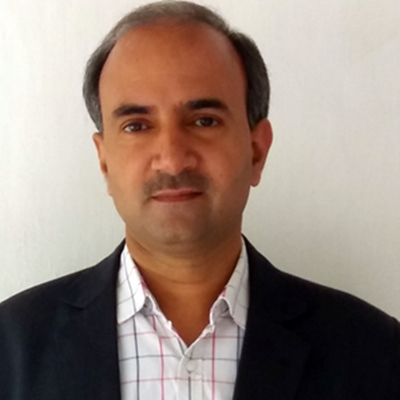Ghaggar River pollution: Sirsa MP Kumari Selja flags rising cancer cases in Haryana
Estimated cases of cancer patients increased in Haryana from 1,486 to 1,678 in 5 years.
 MP Selja said that the river has become so polluted that it is neither fit for drinking nor bathing. (Express File Photo)
MP Selja said that the river has become so polluted that it is neither fit for drinking nor bathing. (Express File Photo) Referring to a study, Union minister of health and family welfare Prataprao Jadhav said that people dwelling near Ghaggar river drains are highly prone to cancer. He added that from 1,486 cancer cases in 2019, such cases have touched 1,678 in 2023.
Jadhav was replying to a question by Sirsa MP Kumari Selja, who flagged the issue of rising cancer cases in Haryana during the ongoing Winter Session of Parliament, linking the spread of the disease to pollution in the Ghaggar river.
Selja had asked about the extent to which the polluted water of Ghaggar river entering Haryana is responsible for spreading cancer in the state.
In his reply on December 13 this year, the minister mentioned a study published in Indian Academy of Sciences on Human Health Risk Assessment which revealed “people dwelling near river drains are highly prone to cancer disease and hazard quotients were observed above threshold limit that poses high carcinogenic risks”. The Haryana State Pollution Control Board has also found the water of Ghaggar river “not fit for drinking”.
The Ghaggar flows through Haryana’s Panchkula, Ambala, Kaithal, Fatehabad and Sirsa districts and through Punjab’s Patiala, Sangrur, and Mansa districts before entering Rajasthan.
After the minister’s reply in Lok Sabha, Selja said that the river has become so polluted that it is neither fit for drinking nor bathing. In a statement on Tuesday, Selja said: “Cancer cases are rising in Haryana but there are no adequate treatment facilities. Patients are forced to travel to Delhi, Chandigarh, or other states for treatment.”
Detailing the efforts aimed to reduce pollution in Ghaggar, Jadhav informed the Lok Sabha: “Under the National River Conservation Plan, sewage treatment capacity of 15 million litres per day (MLD) was created in different towns of Punjab for conservation of Ghaggar river. Punjab Pollution Control Board has informed that to treat waste water from the towns in the catchment of river Ghaggar, 28 STPs (sewage treatment plants) of total capacity of 291.7 MLD have been installed. Haryana State Pollution Control Board has informed that sewage treatment capacity of 588 MLD has been created in river catchment in the state under the Ghaggar Action Plan.”
He added that the estimated cases of cancer patients have increased in Haryana from 1486 to 1678 during the past five years. According to the minister, under the National Cancer Registry Programme of the Indian Council of Medical Research, Haryana reported 1,486 cancer cases in 2019, 1,536 in 2020, 1,580 in 2021, 1,630 in 2022, and 1,678 in 2023.
Jadhav added said the treatment of cancer is either free or subsidised in government institutions. “Financial assistance is provided to poor patients for cancer treatment under the health minister’s cancer patient fund component of the umbrella of Rastriya Arogya Nidhi. Pradhan Mantri Jan Arogya Yojana aims at providing health insurance cover of Rs 5 lakh per family per year for secondary and tertiary care hospitalisation. All modes of treatment for cancer (medical oncology, surgical oncology, and radiation oncology) are covered under the scheme.”
He added that in Haryana, cancer care facilities are available in government medical colleges in Hisar, Karnal, Nuh, Sonipat and Rohtak adding comprehensive cancer care services are provided in National Cancer Institute, Bhadsa (Jhajjar).
A farmer leader from Haryana Mandeep Nathwan, whose Nathwan village lies near Ghaggar river in Fatehabad district, said: “Chemical discharge from factories in Ghaggar river has further polluted the underground water in the nearby areas. It has caused diseases such as hepatitis B and cancer. I lost my mother because of hepatitis B and cancer while hepatitis B caused death of my father. When the poor consume the water of tubewells, they fall ill. It has also forced people to install water purifiers in the homes. The problem is so severe that the people from the neighbouring areas of Ghaggar are discouraged from donating blood so that it doesn’t spread diseases.”













